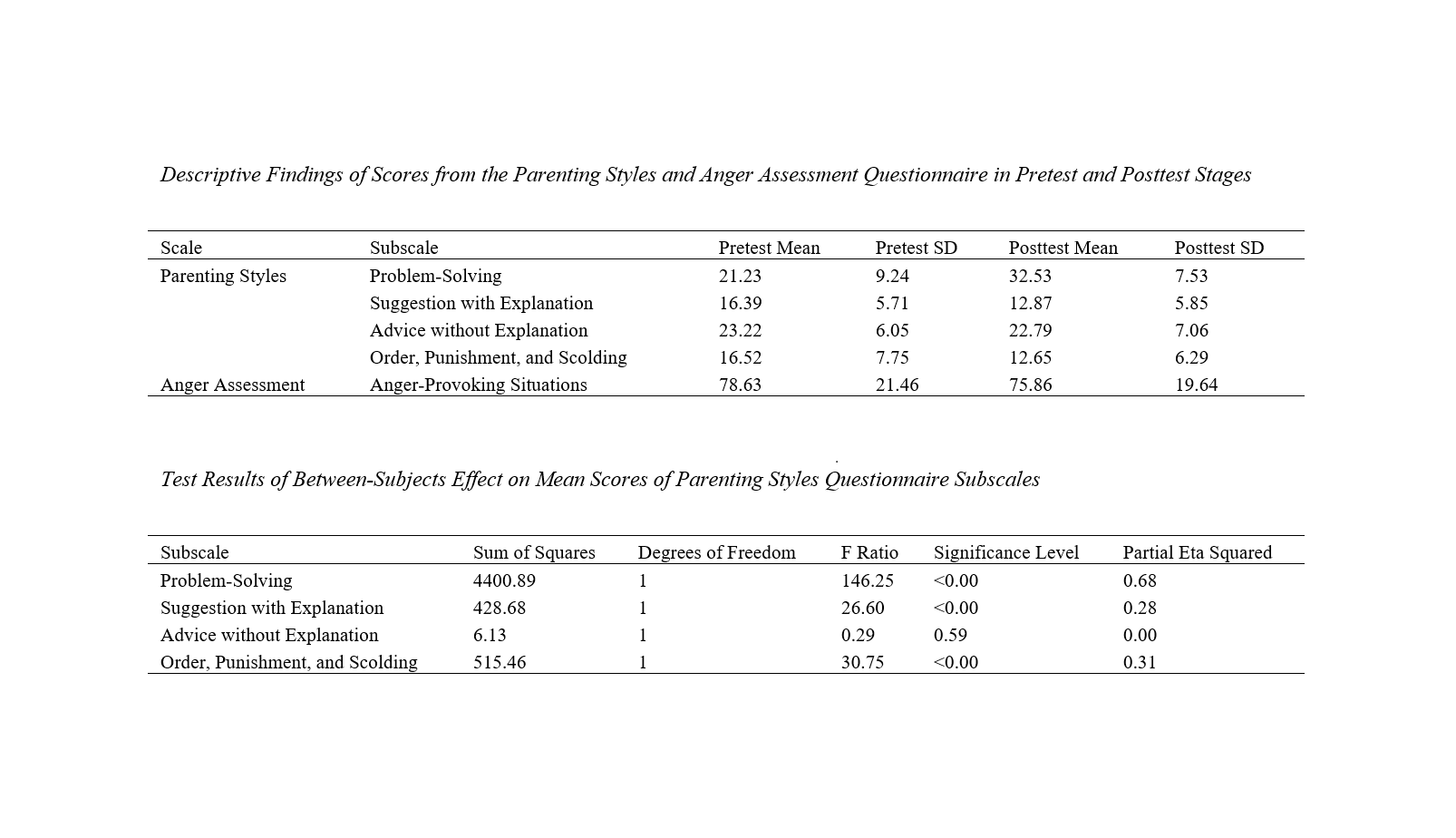Effects of Cognitive-Based Problem-Solving skills On Changing Parenting Styles and Reducing Parental Anger
Abstract
Objective: The current study aims to examine the effect of cognitive problem-solving skills training on parents' parenting styles and their anger reduction towards their children.
Method: The method of this research is quasi-experimental with a pretest-posttest single-group design without follow-up. The sample group consisted of 69 mothers of children aged 4 to 7 years, selected through convenience sampling. In these workshops, which were held over 9 two-hour sessions across 9 weeks, parents were made aware of effective and ineffective methods of dealing with children's behaviors, and practiced exercises to improve their response style to challenging behaviors of children. To evaluate the effectiveness of the training program, two questionnaires were used: the Parenting Styles questionnaire (Shokoohi Yekta & Parand, 2007) and the Anger Assessment questionnaire (Shokoohi Yekta & Zamani, 2007). The research data were analyzed with ANOVA and t-test methods using SPSS software.
Findings: The results showed that participation in the problem-solving workshop had a positive effect on participants' performance regarding their parenting styles. Such that, this program led to an increase in the problem-solving parenting style and a decrease in parents' use of other ineffective parenting styles such as advising without explanation, and punishment and scolding (P<0.05). However, the analysis of the findings did not show a significant difference in terms of reducing mothers' aggression towards their children (P>0.05).
Conclusion: Accordingly, it can be inferred that training in problem-solving skills can be used to improve parenting styles and the quality of interpersonal communications within the family.
Downloads

Downloads
Additional Files
Published
Issue
Section
License
Copyright (c) 2024 Mohsen Shokoohi Yekta (Corresponding Author); Negin Motamed Yeganeh (Author)

This work is licensed under a Creative Commons Attribution-NonCommercial 4.0 International License.




















